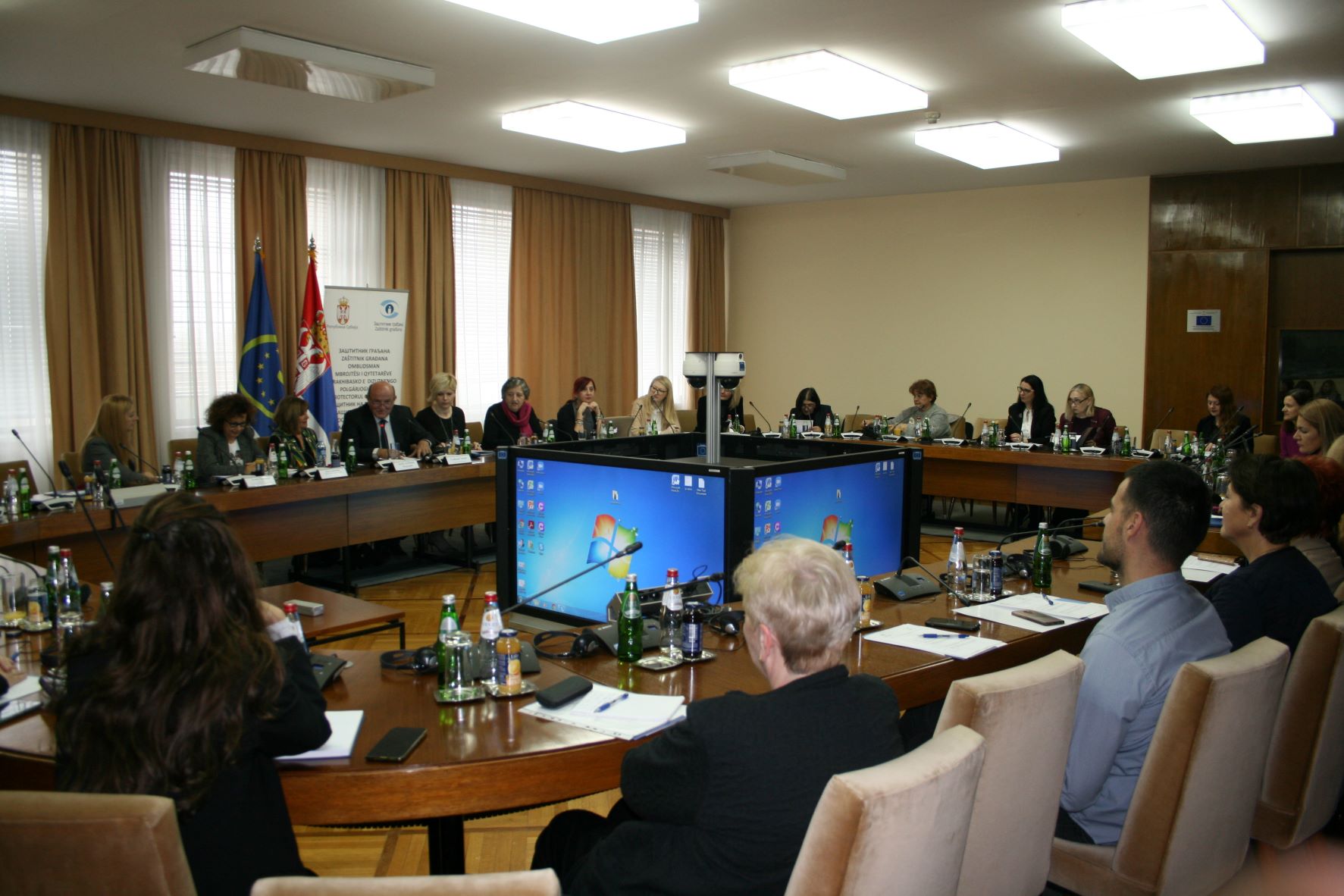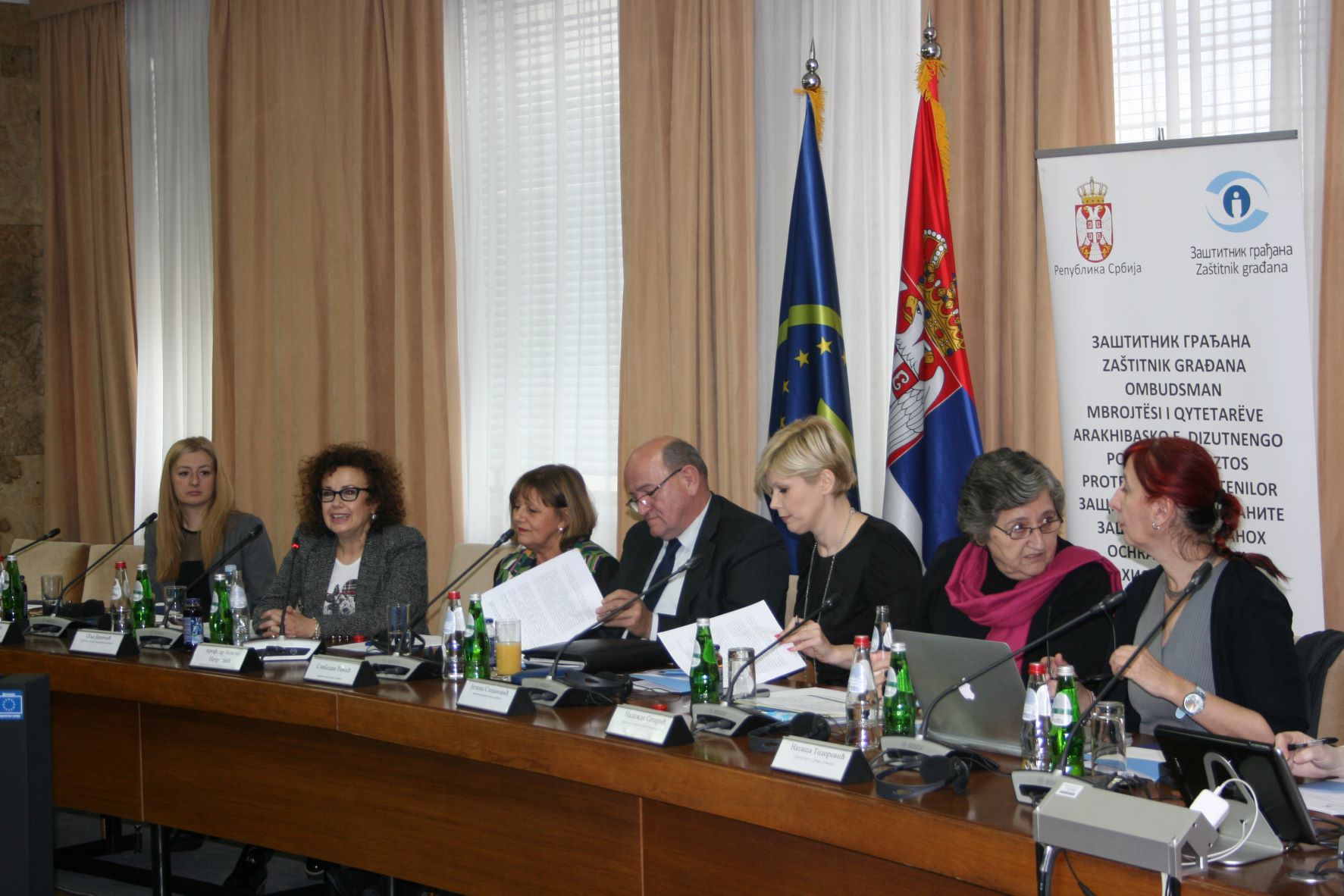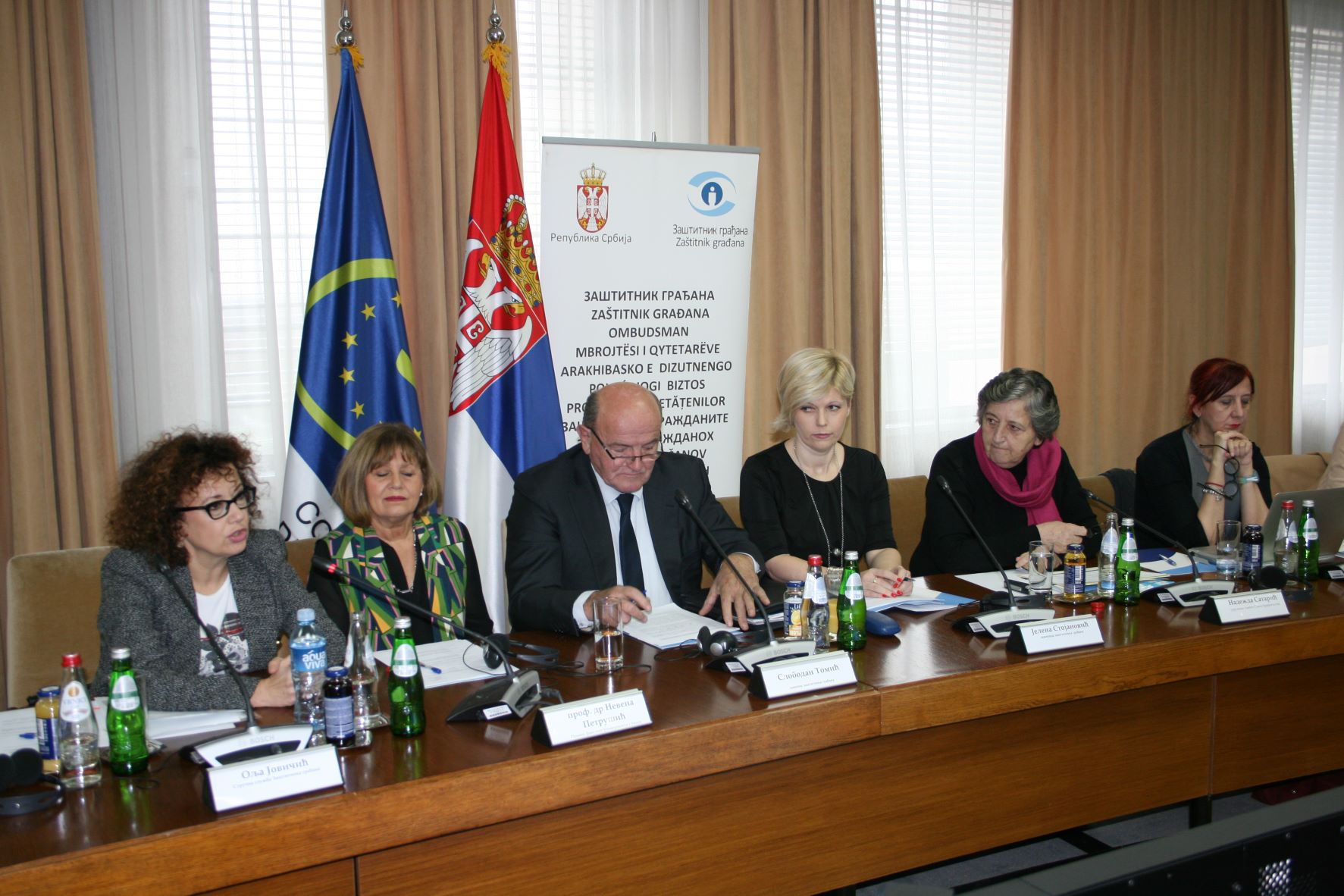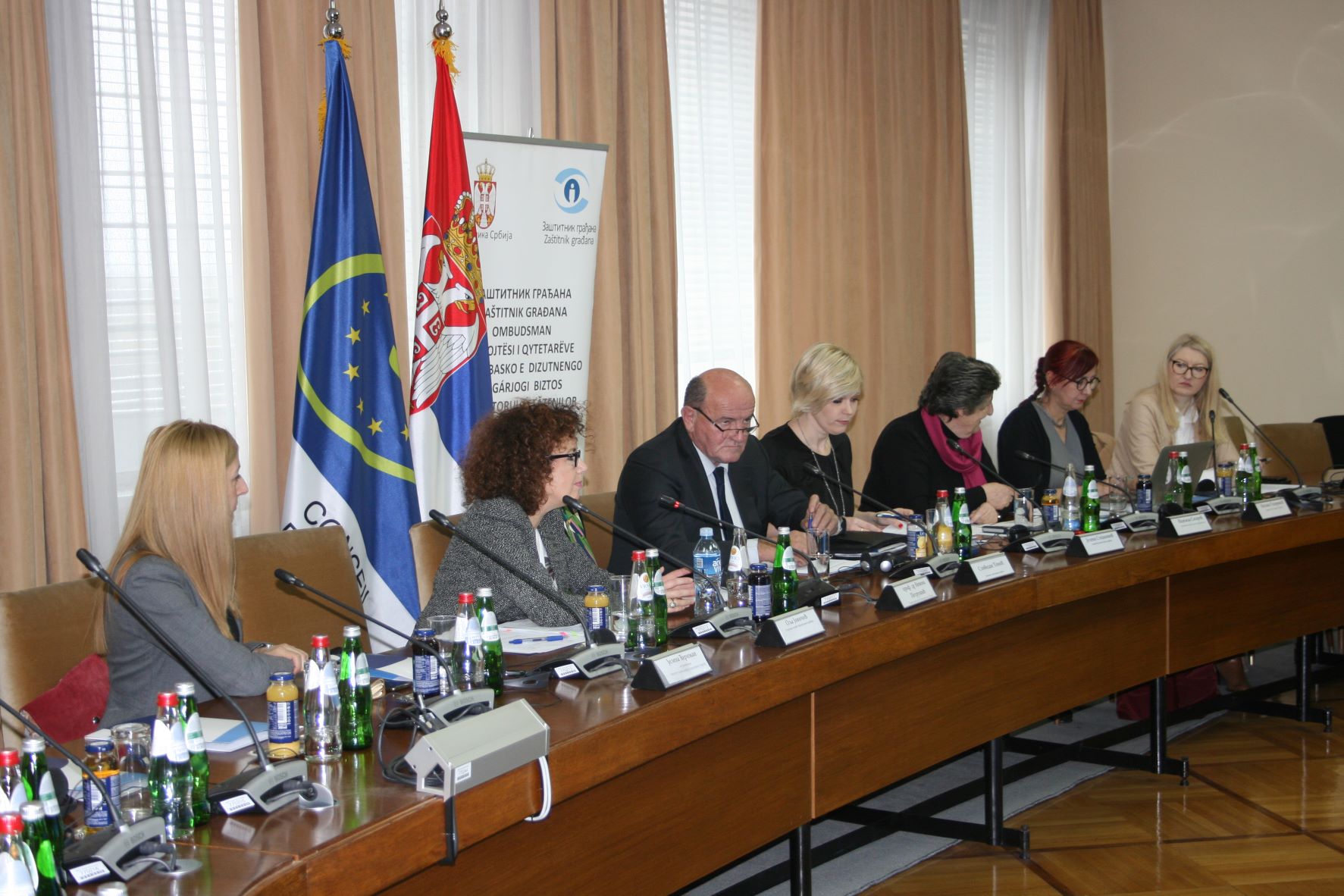Rights of older women from rural areas

On November 28, 2022, the Protector of Citizens organized the panel discussion “Protecting the rights of older women from rural areas through monitoring the implementation of the Revised European Social Charter” in the Palace of Serbia, with the aim of protecting the rights of older women from rural areas through reporting on the implementation of the Revised European Social Charter as an instrument that proclaims and encourages the full protection and enjoyment of the rights of older persons.
Nataša Todorović, the representative of the Red Cross of Serbia spoke about the capacities and way of organizing the work of civil society organizations that deal with the protection of the rights of older women in the countryside, while the researcher at the Institute for Philosophy and Social Theory Jelena Ćeriman spoke about the application of a research approach to monitoring the realization of the economic and social rights of older women in rural areas.
Nadežda Satarić stated that the basic characteristics of the position of older women in rural areas are social exclusion, invisibility, as well as a lower level of education and insufficient information about their rights, as well as that their degree of enjoyment of economic rights is very low, although they participate in the creation of economic goods. Nevena Petrušić, a professor at the Faculty of Law in Niš, pointed out that Serbia has ratified a number of international agreements for the protection and promotion of the rights of older persons and that it has a good normative framework, but that problems arise when implementing them.
The Deputy Protector of Citizens for Gender Equality, Jelena Stojanović, announced that this independent institution for the protection of human rights will next year, through customized questionnaires, obtain data from the relevant local, provincial and state authorities and organizations that deal with the protection of the rights of older women in rural areas in order to have a complete picture on the availability and quality of home care and home treatment services.
The conclusion of the conference is that it is necessary to involve a wide range of relevant actors at the national, provincial and local level in solving challenges important for the realization of the rights of particularly sensitive groups, including civil society organizations, in order to collect as specific data as possible on the position of older women in rural areas.



